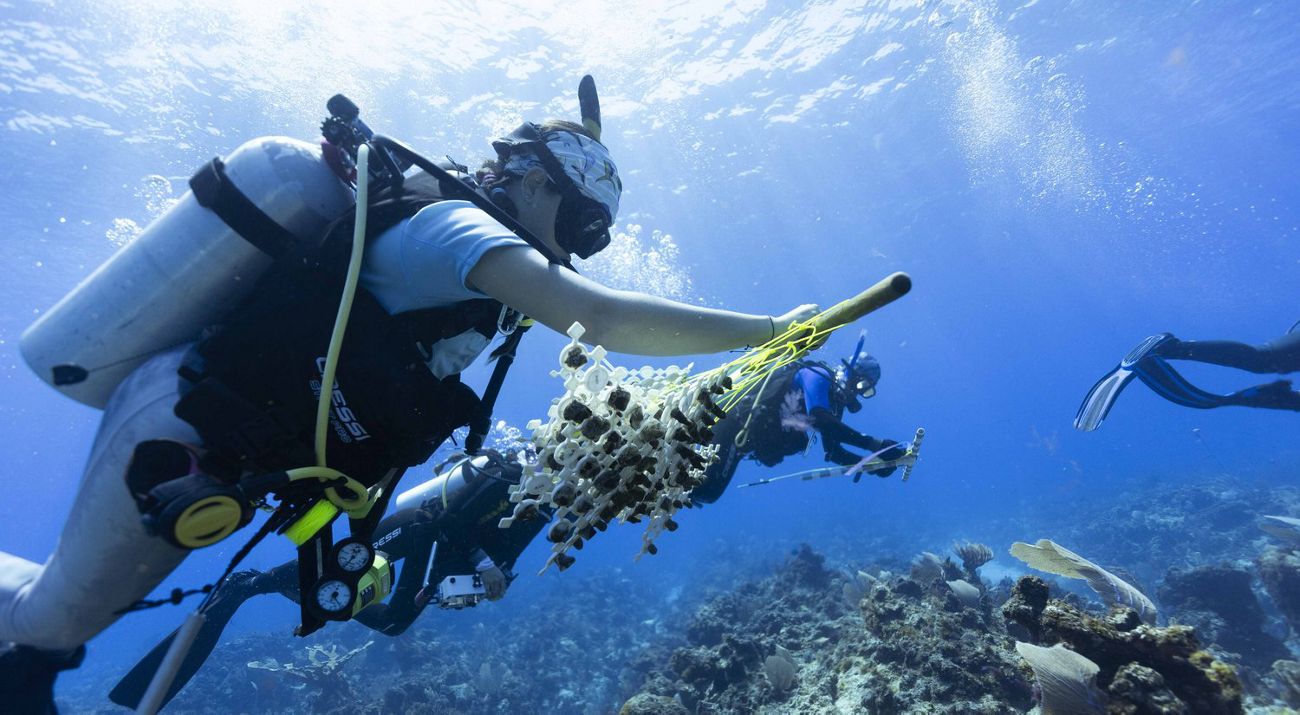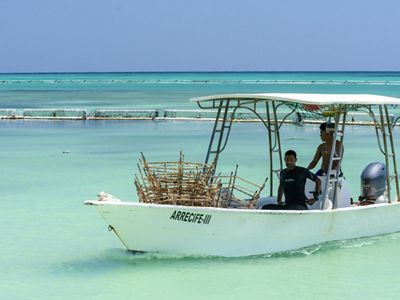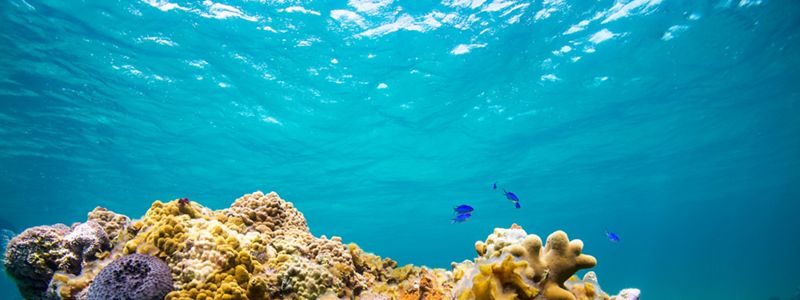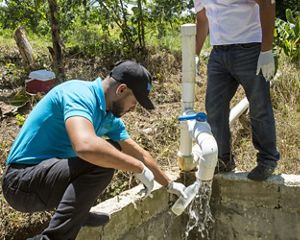CoralCarib: Supporting Livelihoods and Restoring Reefs
Our latest updates from across the Caribbean.

Over the past months, the CoralCarib program has made significant progress in its efforts to restore coral in the Caribbean. Recently, CoralCarib completed four key assessments—Threat Assessment, Sustainable Livelihoods, Abatement Plan and Larvae Dispersal Modeling—that provide valuable insights to guide coral restoration strategies.
In Jamaica, the team has partnered with regional experts to provide important data for coral restoration practitioners. Through a series of webinars, the team has trained over 100 persons from NGOs, academic institutions and regulatory authorities. The Jamaica team will also partner with CoralCarib’s implementing organization in the Dominican Republic, FUNDEMAR, to highlight advancements in sexual reproduction techniques for coral restoration.
In Haiti, the team is building coral tables, an important step for scaling up reef conservation at the refugia sites. The team also established a formal agreement with fishers to protect coral reefs at these sites.
In Cuba, the project has identified its National Aquarium as an intervention site. The team has also been constructing a new coral lab that marks a major milestone for the country and its coral restoration efforts.

In the Dominican Republic, the team has achieved significant outcomes, including capacity- building efforts such as coral spawning logistics workshops with local dive centers to create new ecotourism opportunities. The establishment of a National Spawning Commission is a major step for reef restoration and the result of close collaboration with multiple institutions. The team made scientific progress with studies on flatworms linked to coral disease, innovations in biodegradable nets for coral growth, and the successful reproduction of Gramma loreto, a native reef fish—marking a first for the country.
CoralCarib is driving tangible developments toward restoring coral ecosystems across the region and providing crucial co-benefits including coastal protection, fisheries support, economic opportunities and enhanced resilience for communities.
We Can’t Save Nature Without You
Sign up to receive monthly conservation news and updates from the Caribbean.



